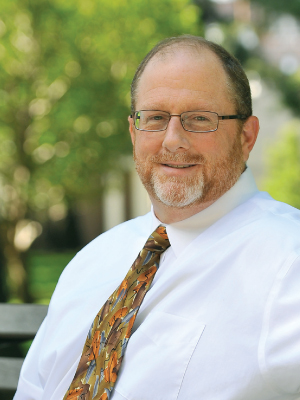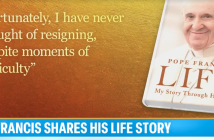(An op-ed by C. Colt Anderson, PhD, dean of the Graduate School of Religion and Religious Education)
Pope Francis showed he truly understands evangelization when he famously asked, “If someone is gay and seeks the Lord and is of good will, who am I to judge?” While this has alarmed some Catholics, his question reflects a deep understanding of Catholic doctrine. Evangelization does not tell people what they ought to regret. Instead it offers the promise that what they actually regret can be forgiven.
More importantly, you cannot charge someone with sin, because sin is a subjective reality. It is radically subjective because it is about the relationship between God, who is not an object, and a person, who is not an object. Whereas Catholic doctrine identifies certain actions as objectively immoral, it does not equate what is immoral with sin. A person has to believe that an action is sinful for it to be so. If a person willfully did something that he or she believed was sinful, even if it was morally good, then it would be sinful for that person. So it is not our task or our place to charge people with sin, especially if the goal is evangelization. We should keep in mind the fact that contrition over sin is a gift of the Holy Spirit. It is not the result of browbeating.
St. Catherine of Siena perceived that the desire to punish is simply inconsistent with the Christian mission to save souls. When a person believes that he or she has the standing to act as the judge of another, St. Catherine said that the person had forgotten the infinite nature of his or her sins. Catherine wrote: “In this way [leaving judgment to Christ]you will come to me [God] in truth, and you will show that you have remembered and observed the teaching given you by my Truth, that is, to discern my will rather than to judge other people’s intentions.” (Dialogue #103) Since judgmental people can no longer look at the sins of others with sympathy, they also lose their ability to discern the will of Christ. They forget that Christ gave humanity the church for the mission of salvation.
The question of whether or not a living person is justified–which is the question of whether or not he or she is part of the church–cannot be answered by us. The Council of Trent taught that the formal cause of our justification is the justness of God. This justness is real; and, it is a gift given to us through the action of the Holy Spirit. So no one is justified for following the rules, for being right, for helping the poor, for personal virtue, or for meritorious conduct. The Holy Spirit apportions justification to each individual as the Holy Spirit wills in view of each person’s disposition and cooperation.
To judge, we would need to know a person’s disposition, which is a way of speaking about everything that we can attribute to genetics as well as environmental factors. Of course, none of us knows this perfectly about ourselves. Moreover, we would need to know is how much grace the Holy Spirit has given. Finally, we would need to know how much people actually cooperated with the grace that was given to judge them. Is the person who had a bad start in life, who received less grace, but who cooperated fully with the grace received, better or worse, than the person who had every advantage, who was showered with grace, but who only cooperated minimally?
Pope Francis pointed the way to becoming a more evangelical church with his simple and humble question: “Who am I to judge?” He has not denied that there is sin, or that there is a judge, or that people need to embrace a life of ongoing conversion. All he has denied is that it is our role to judge people, which liberates us to discern the will of Christ and to love one another.



